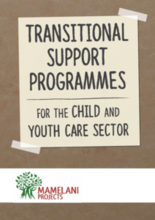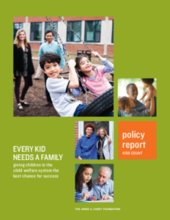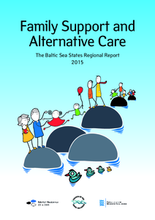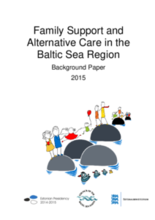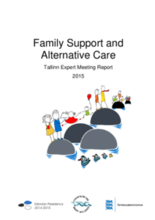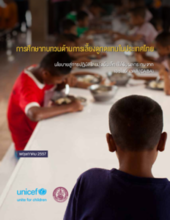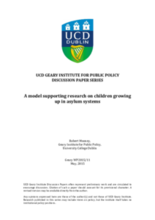Displaying 1101 - 1110 of 1511
In this executive summary, the Truth and Reconciliation Commission of Canada provides an introduction to the use of residential schools for aboriginal children in Canada, presents an overview of the Commission’s activities, describes the history and legacy of these residential schools, and outlines the challenges of reconciliation, including 94 recommendations, or “calls to action” for reconciliation in the field of Child Welfare among many others.
This booklet was developed by Mamelani Projects, a community development organisation in South Africa. The booklet outlines Mamelani’s approach to Youth Development and providing transitional support to young people as they transition out of Child and Youth Care Centres (CYCCs).
This KIDS COUNT policy report highlights the benefits of family care for children and the need to prioritize family settings for all children in the child welfare system in the United States.
This KIDS COUNT policy report underscores the importance of family-based care and calls for limiting the role of residential treatment care for children in the US
This report was developed as part of a mapping study aimed at analysing the situation of alternative care and family support in the Baltic Sea Region, assessing the achievements since the 2005 Ministerial Forum and identifying relevant opportunities and challenges for the future.
This background paper was developed as part of a regional study which gathered relevant data and information on family support and alternative care in the eleven Member States of the Council of the Baltic Sea States (CBSS).
This report provides an overview of the two-day expert meeting on alternative care and family support in the Baltic Sea Region that took place in Tallinn, Estonia in May 2015.
The purpose of this research was to capture more accurate and detailed information regarding children in various forms of alternative care in Thailand.
This report, first distributed at the seminar co-hosted by Lumos and USAID on the challenge of institutionalization in Haiti, provides some background information on the effects of institutionalisation as well as the particular situation in Haiti.
This paper examines the Irish national and international legislation governing asylum systems, provides an overview of the Irish Direct Provision system and suggests a model under which these cases may be analysed across different societal levels.

